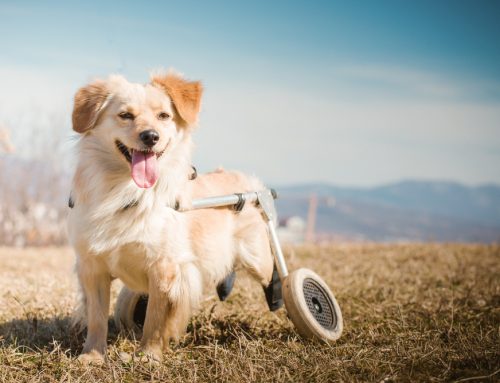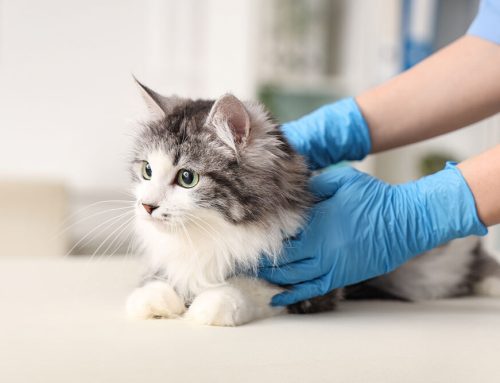Each life stage your pet enters requires specialized care to ensure they remain happy and healthy and by your side for many years. As your furry pal enters their senior years, they experience a new set of unique health and wellness challenges that can impact their quality of life. Fortunately, you can help your senior pet stay in great shape throughout their golden years. Put our Homestead Animal Hospital team’s tips into action to support your aging pet.
#1: Keep your pet’s muscles and joints strong
While arthritis can develop in young pets, the condition is much more common in senior pets. As the joint cartilage degrades and the bones grind together, painful inflammation results, making normal activities difficult and uncomfortable. Although arthritis is a degenerative process, you can preserve your senior pet’s joint function, mobility, and comfort by:
- Focusing on weight management — Pets kept at a lean body weight live longer and put less pressure on sore, stiff joints. Obesity prevention not only helps your pet remain mobile, but also lessens their risk of developing a multitude of serious health conditions, including diabetes, heart disease, and some cancers. Keep your pet at a healthy weight by accurately measuring their meals in appropriate portions and giving only low-calorie treats.
- Exercising regularly — Daily exercise is key to not only keeping your pet at a healthy weight, but also ensuring joints and muscles remain strong. Try low-impact activities such as walking, swimming, and gentle games of fetch or chase to keep your senior pet active.
- Giving joint supplements — Adding joint supplements or switching to a prescription diet can help reduce inflammation, preserve cartilage, and support a healthy weight.
#2: Make a point to brush your pet’s teeth
Tackling your feisty Chihuahua to brush their teeth does not sound like fun, but toothbrushing is incredibly important for their health and wellbeing. Pets can develop dental disease in a few short years, and senior pets often suffer from advanced periodontal problems that cause significant pain, difficulty with eating and drinking, systemic infection, and organ disease.
If you can’t brush your pet’s teeth every day, aim for at least two to three times per week to minimize plaque and tartar accumulation. Approved dental treats and chews and food and water additives can also keep dental disease at bay.
In addition to your senior pet’s at-home dental care plan, schedule regular veterinary oral exams and cleanings so you can find hidden disease and eradicate bacteria above and below the gumline. Most pets should have annual dental cleanings, but some have unique situations that necessitate more frequent professional dental care.
#3: Focus on mental health and enrichment
Cognitive dysfunction often goes undiagnosed in senior pets because their owners attribute the signs to normal aging changes. But, altered sleep patterns, disorientation, confusion, and memory issues are clinical signs of cognitive dysfunction that proactive management can help.
Keep your furry pal’s mind sharp with these daily mental enrichment activities:
- Training sessions
- Treat puzzles
- Interactive toys
- Games that encourage natural behavior (e.g., sniffing, digging, scratching, climbing)
If your pet enjoys the company of other people and pets, set up playdates with pets who have similar play styles and personalities.
#4: Modify your home for easy navigation
As your pet ages and their body begins to wear out, they can develop conditions that make regular life more challenging. They may lose their vision because of diabetes, glaucoma, or hypertension, and their hearing may fade, making them anxious, which may cause them to become defensive when startled. Joint pain and degenerative conditions can make navigation difficult, particularly on slippery surfaces.
Modify your home and your pet’s living area so they can move around with ease and comfort with the following upgrades:
- Firm orthopedic bedding
- Carpet runners, rugs, and yoga mats
- Elevated food and water dishes
- Nightlights
- Ramps or steps
- A private resting area
#5: Stay on top of preventive veterinary care

The single best way to support your pet through their senior years is by staying on top of their preventive care with regular veterinary exams that can extend and improve quality of life by:
- Preventing infectious disease through appropriate vaccination
- Detecting disease in its earliest stages
- Monitoring chronic health conditions and treatment response
- Screening for and preventing parasitic infections
- Providing professional dental care
- Recommending nutritional support for various health conditions
As your pet grows older, more frequent wellness visits are essential for early disease detection, chronic condition management, and general preventive care. Typically, senior pets should receive wellness care every six months, with more frequent exams if they need a chronic condition monitored.
Reward your senior pet’s lifetime of love with the same level of devotion through regular preventive care. Give our Homestead Animal Hospital team a call to schedule your pet’s appointment.
















Leave A Comment